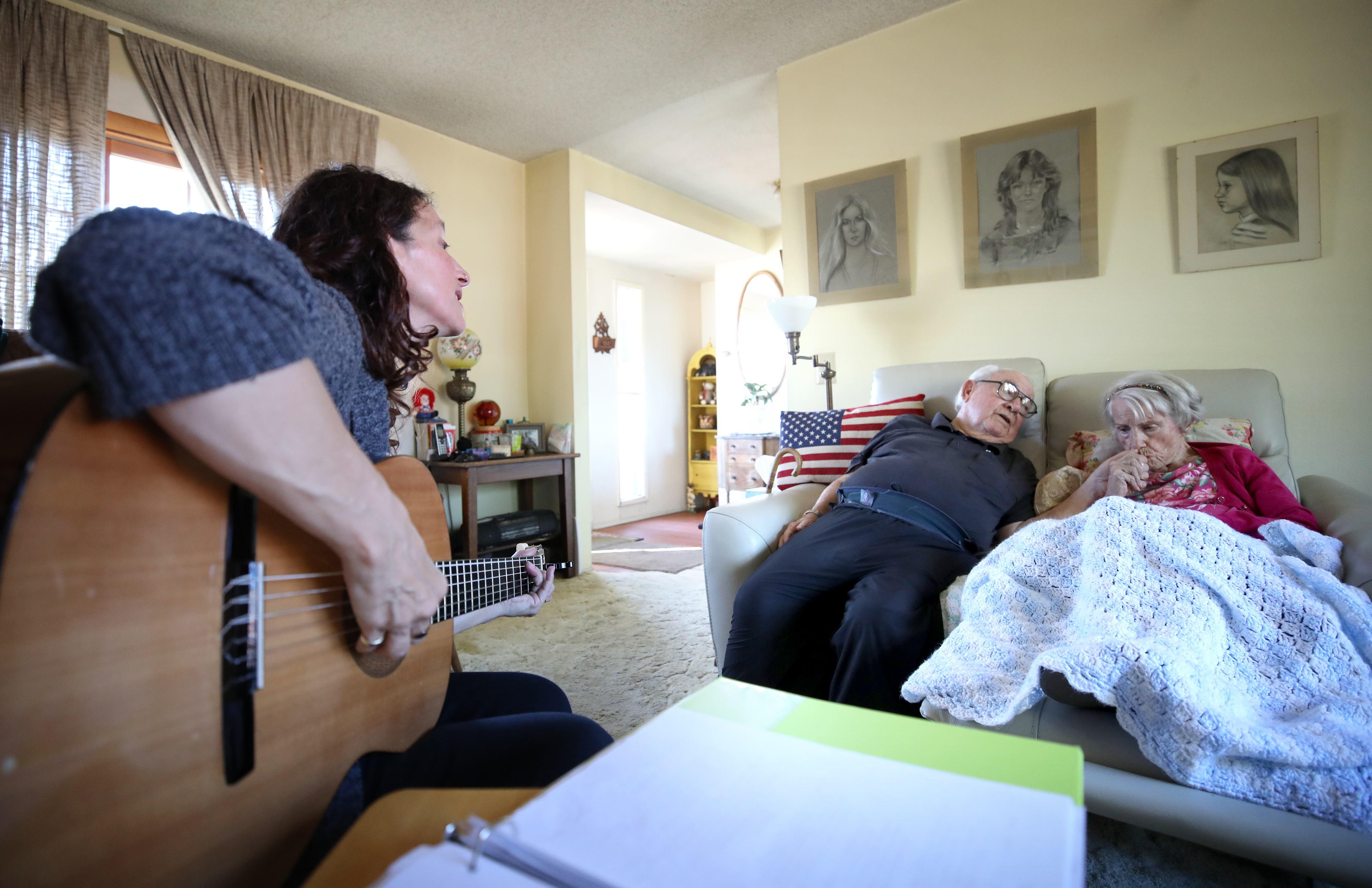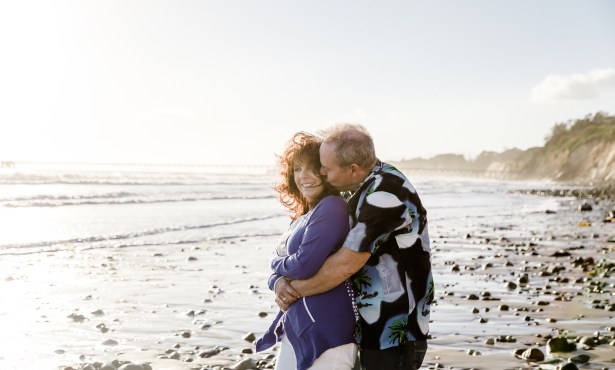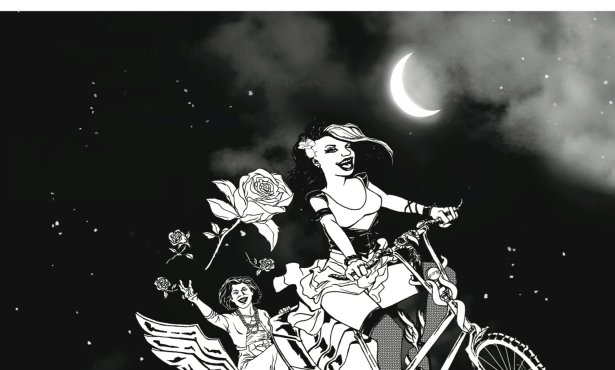Music Therapy Helps the Dying Find Peace
Santa Barbara’s VNA Health Uses Music to Ease Transition from Life to Death

For many, the end of life is a final chance to say their goodbyes, to ask for forgiveness, to make their peace with those who shared their lives. But what if the person dying can no longer communicate in the traditional sense of the word?
Stefana Dadas, a certified music therapist at VNA Health, believes music can play a role. She’s also seen it become a catalyst for the expression of emotions that are hard to bring out with conversation, and, in the process, for removing the emotional blockage that can get in the way of a peaceful transition from life to death.
Music therapy, according to Dadas, is the “clinical use of musical interventions to meet personal goals.” Those goals can be physical, psychological, and even spiritual, but all play a part in ensuring that someone passes away feeling at peace. Music therapy can take place in a group or individual setting and can take many different forms.
Dadas puts together playlists based around certain themes, coordinates live performances at hospice centers, and speaks with family members to create compilations that might trigger sentimental memories for loved ones who can no longer communicate orally. When patients hear songs that they associate with certain memories, “you can see a change in body language,” explained Dadas. “You can see they’re responding, even if they can’t say so.”
Dadas has put together playlists from a diverse range of cultures — “Persian, to Greek, to Arabic, to Hindi” — but the most prominent breakdown is by generation. “People who grew up in the 1930s and that time period obviously tend to enjoy a lot of the oldies, while those who were born more recently tend to be more interested in rock and roll and things like that,” said Dadas, who smiled when recalling that one patient even requested “a playlist of heavy metal.”
In her 11 years with VNA, Dadas has witnessed many touching scenes. There was the New York couple who’d spent many years attending Broadway shows. “We put together a playlist of Broadway tunes, and all of a sudden you could see the husband become much more lucid,” said Dadas. His wife told Dadas that “the music is something that transports us back.”
But this therapy is not just for those with families and friends. “The reality is that some people don’t have anyone with them when they pass,” said Sena Woodall, director of hospice at VNA Health. “We try to make sure that even if your family or friends aren’t here for one reason or another, everyone can die with support. Nobody dies alone with us.”
Woodall remembered a patient who was dying without friends or family. “You could see he had a lot of anxiety,” said Woodall. “But because of the music, he was able to settle into a more peaceful state.”
See vna.health.


